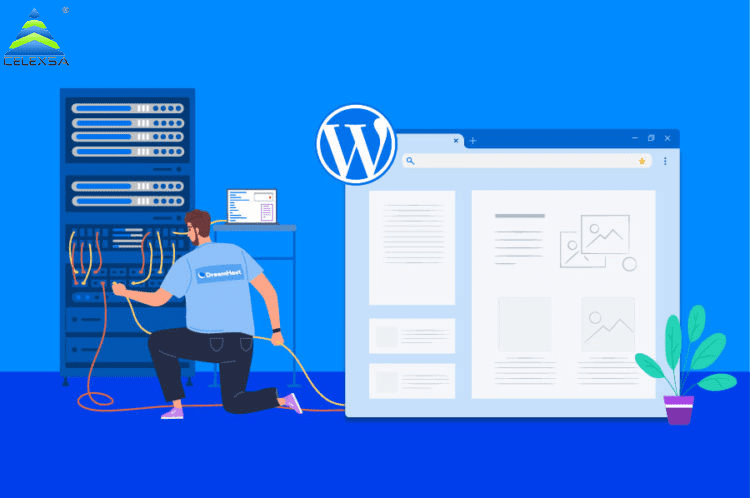Web Hosting for WordPress: Tips and Hosting Recommendations

Introduction: In the vast landscape of the internet, WordPress stands as a formidable force, powering over 40% of websites worldwide. However, the success of a WordPress site doesn’t solely depend on its engaging content or sleek design; the choice of web hosting plays a pivotal role. In this article, we’ll delve into the intricacies of web hosting for WordPress, providing valuable tips and recommendations to ensure a seamless online presence.
Understanding the Importance of Web Hosting for WordPress:
1. Speed Matters:
- WordPress sites thrive on speed. A slow-loading website can result in high bounce rates and poor user experience. Opt for a hosting provider that offers solid-state drives (SSDs) and robust server infrastructure for optimal speed.
2. Uptime Reliability:
- A website that experiences frequent downtime can be detrimental to its success. Look for hosting providers with a proven track record of high uptime percentages (99.9% or higher) to ensure your WordPress site is always accessible.
3. Scalability:
- As your website grows, so should your hosting plan. Choose a provider that allows for easy scalability, enabling you to upgrade resources seamlessly to accommodate increasing traffic and content.
4. Security Features:
- WordPress sites are attractive targets for hackers. Prioritize hosting providers that offer robust security features such as SSL certificates, regular backups, and malware scanning to safeguard your website and user data.
Tips for Choosing the Right Web Hosting for WordPress:
1. Know Your Hosting Options:
- Understand the different types of hosting, including shared, VPS (Virtual Private Server), and dedicated hosting. Each has its pros and cons, and the choice depends on your website’s size, traffic, and resource requirements.
2. Consider Managed WordPress Hosting:
- Managed WordPress hosting is specifically designed for WordPress sites. It provides automatic updates, enhanced security, and specialized support, allowing you to focus on creating content rather than managing server configurations.
3. Check Resource Allocation:
- Examine the resources allocated to your hosting plan, including CPU, RAM, and storage. Ensure that your chosen plan meets the demands of your WordPress site, preventing performance bottlenecks during traffic spikes.
4. Investigate Customer Support:
- A responsive and knowledgeable support team is invaluable, especially when technical issues arise. Read reviews and testimonials to gauge the quality of customer support offered by potential hosting providers.
Hosting Recommendations for WordPress:
1. Bluehost:
- A WordPress-recommended hosting provider, Bluehost offers affordable plans, excellent uptime, and 24/7 customer support. Their user-friendly interface makes it a popular choice for beginners.
2. SiteGround:
- Known for its stellar performance and top-notch security features, SiteGround is a reliable option for WordPress hosting. Their customer service is highly acclaimed, providing assistance with WordPress-related queries.
3. WP Engine:
- WP Engine specializes in managed WordPress hosting, offering automatic updates, daily backups, and a range of security features. While slightly pricier, the peace of mind it provides is often worth the investment.
4. Hosting:
- A2 Hosting boasts impressive speed, thanks to its Turbo Servers. With features like free SSL, SSD storage, and anytime money-back guarantee, it’s a solid choice for WordPress enthusiasts seeking performance.
Conclusion:
In the dynamic realm of WordPress, the right web hosting can be a game-changer. By prioritizing factors like speed, reliability, scalability, and security, you pave the way for a successful online presence. Whether you opt for shared hosting, VPS, or managed WordPress hosting, the key is to align your choice with the unique needs and goals of your WordPress site.











